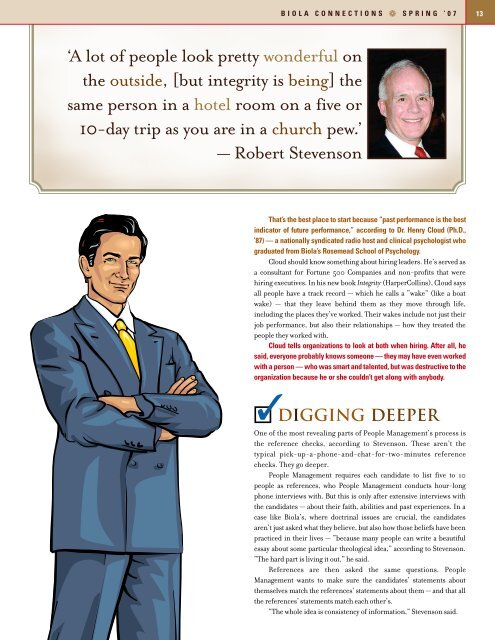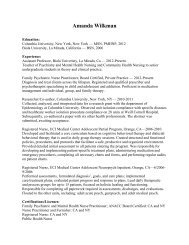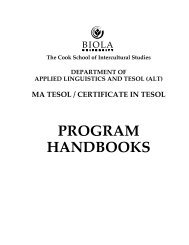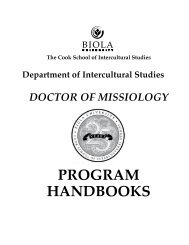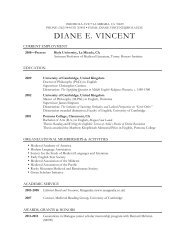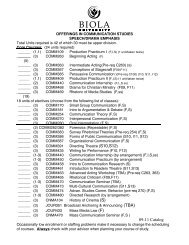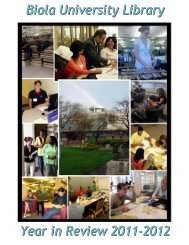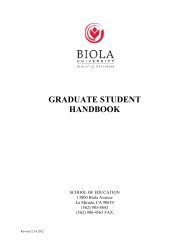Dawkins' God Delusion Divorced American ... - Biola University
Dawkins' God Delusion Divorced American ... - Biola University
Dawkins' God Delusion Divorced American ... - Biola University
You also want an ePaper? Increase the reach of your titles
YUMPU automatically turns print PDFs into web optimized ePapers that Google loves.
‘A lot of people look pretty wonderful on<br />
the outside, [but integrity is being] the<br />
same person in a hotel room on a five or<br />
10-day trip as you are in a church pew.’<br />
— Robert Stevenson<br />
BIOLA CONNECTIONS ❁ SPRING ’07 13<br />
That’s the best place to start because “past performance is the best<br />
indicator of future performance,” according to Dr. Henry Cloud (Ph.D.,<br />
’87) — a nationally syndicated radio host and clinical psychologist who<br />
graduated from <strong>Biola</strong>’s Rosemead School of Psychology.<br />
Cloud should know something about hiring leaders. He’s served as<br />
a consultant for Fortune 500 Companies and non-profits that were<br />
hiring executives. In his new book Integrity (HarperCollins), Cloud says<br />
all people have a track record — which he calls a “wake” (like a boat<br />
wake) — that they leave behind them as they move through life,<br />
including the places they’ve worked. Their wakes include not just their<br />
job performance, but also their relationships — how they treated the<br />
people they worked with.<br />
Cloud tells organizations to look at both when hiring. After all, he<br />
said, everyone probably knows someone — they may have even worked<br />
with a person — who was smart and talented, but was destructive to the<br />
organization because he or she couldn’t get along with anybody.<br />
✓<br />
Digging Deeper<br />
One of the most revealing parts of People Management’s process is<br />
the reference checks, according to Stevenson. These aren’t the<br />
typical pick-up-a-phone-and-chat-for-two-minutes reference<br />
checks. They go deeper.<br />
People Management requires each candidate to list five to 10<br />
people as references, who People Management conducts hour-long<br />
phone interviews with. But this is only after extensive interviews with<br />
the candidates — about their faith, abilities and past experiences. In a<br />
case like <strong>Biola</strong>’s, where doctrinal issues are crucial, the candidates<br />
aren’t just asked what they believe, but also how those beliefs have been<br />
practiced in their lives — “because many people can write a beautiful<br />
essay about some particular theological idea,” according to Stevenson.<br />
“The hard part is living it out,” he said.<br />
References are then asked the same questions. People<br />
Management wants to make sure the candidates’ statements about<br />
themselves match the references’ statements about them — and that all<br />
the references’ statements match each other’s.<br />
“The whole idea is consistency of information,” Stevenson said.


